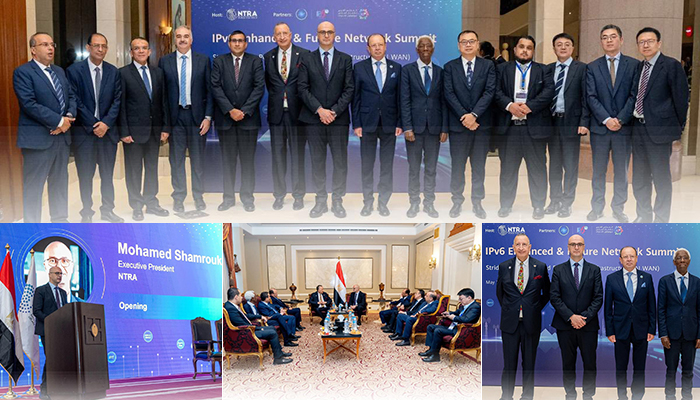
Within the framework of its action plan for the year 2025, the Arab ICT Organization (AICTO) organized the Regional Summit for IPv6 and Future Networks on 10–11 May 2025 in Cairo, Egypt.
The event was held in partnership with the Ministry of Communications and Information Technology (MCIT), the National Telecom Regulatory Authority (NTRA) of the Arab Republic of Egypt, the International “IPv6 Forum”, the Arab Council for IPv6, and several international partners.
This high-level summit took place under the auspices of His Excellency the Minister of Communications and Information Technology of the Arab Republic of Egypt, and brought together senior officials from the telecommunications sector, network operators from Egypt and across the Arab region.
A key highlight of the summit was the official launch of Egypt’s National Strategy for IPv6. The strategy aims to ensure full readiness of both public and private infrastructure to support IPv6 over the next three years. It also seeks to achieve a national IPv6 adoption rate of over 80% by 2030, and to enable Internet service providers to fully support the protocol by the end of 2026.
In his opening address, H.E. Eng. Mohamed Ben Amor, Director General of the Arab ICT Organization, emphasized that the adoption of IPv6 is a pivotal step toward keeping pace with the rapid expansion of connected devices, Internet of Things (IoT) services, and artificial intelligence. He commended Egypt’s initiative, describing it as a model for Arab countries in strategic vision and digital planning.
His Excellency further reiterated AICTO’s commitment to fostering regional cooperation and capacity-building efforts. He highlighted the launch of the Arab Council for IPv6 as a significant step in supporting the region’s transition and affirmed the organization’s dedication to working with international partners to accelerate sustainable digital transformation.
H.E. Eng. Mohamed Shamroukh, CEO of the National Telecom Regulatory Authority (NTRA), underlined that Egypt’s National IPv6 Strategy will play a vital role in advancing the country’s digital transformation. He noted that the implementation of this protocol will enable a wide range of innovative technologies and services, including 5G applications, IoT, smart homes, and personal wearables, and will significantly enhance user experience across telecommunications services.

